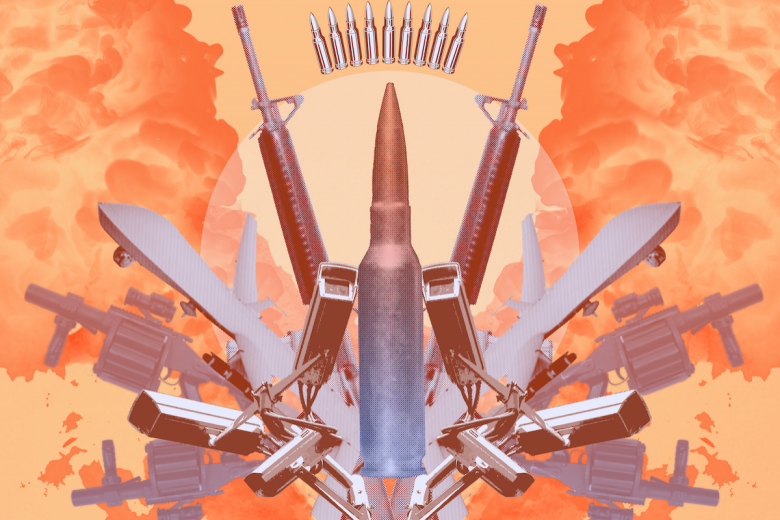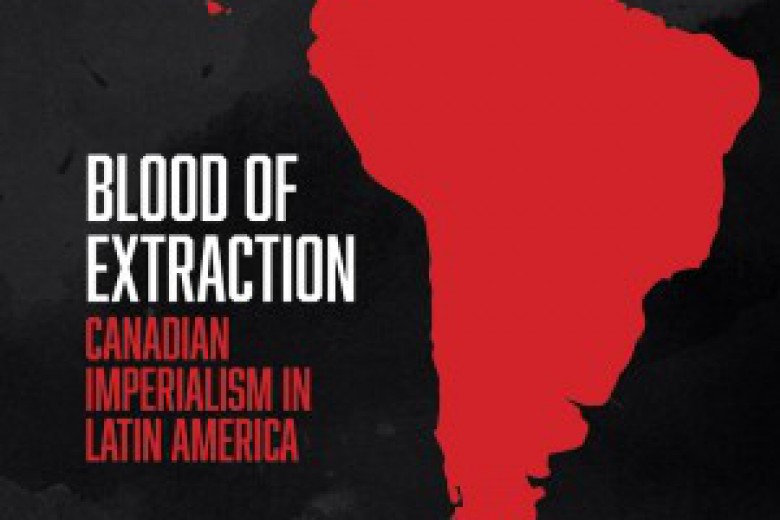
“No nation can donate liberation to another nation. Liberation should be achieved in a country by the people themselves.” —Malalai Joya, Member, Afghan House of the People
The U.S. imperial project in Afghanistan has faltered. The government created by the United States lacks credibility and legitimacy. The vast majority of the people remain poor. The drug economy is dominant. Despite an increase in NATO military forces, the armed resistance led by the Taliban is increasing in strength. So what should Canada’s response be?
The public debate on Afghanistan has had a very narrow focus in this country. The primary concern has been the role of the Canadian Forces in the counter-insurgency war: How many more Canadians will be killed? How long will our forces remain in Kandahar province? What will the United States think if Canada withdraws from the southern conflict zone? If Canada pulls its forces out of Afghanistan, will there be chaos? Meanwhile, the occupation grinds on and the hopes for peace in Afghanistan recede into the distance.
It is time for Canadians to ask what the Afghan people want. At the top of the list would certainly be an end to the death, destruction and despair of the current occupation (the real “three Ds” that Afghans have inherited from Canada’s “development, diplomacy and defence” state-building strategy). The polls all show that a large majority of Afghans want a negotiated settlement and an end to the war. The majority do not want to see the return of the Taliban to government. The fact that the Afghan public supports negotiation with the Taliban insurgents is an indication of how far they are willing to go to end the violence. The current U.S.-NATO policy, supported by the Canadian government, however, only perpetuates the war.
The Afghan people also want their sovereignty, their right to self-determination and their democratic rights. Since October 2001 the United States, its allies and United Nations agencies have directed political, military and economic policy in the country. Afghanistan has been treated like a 19th-century colony.
Beginning with the Bonn conference in 2001, the U.S. government has imposed a political structure of its own making on Afghanistan. They installed Hamid Karzai, their key agent from the 1979-92 anti-Soviet proxy war, as president. They dictated the basic structure of the new constitution. The Afghan people had wanted to restore the democratically instated 1964 constitution after the removal of the Taliban government. Instead, the U.S. government and its allies, including Canada, manipulated the process to impose an Islamist constitution on them. This Islamist constitution, demanded by the jihadist allies of the U.S. government, has proven to be a major barrier to the development of democratic parties and movements in Afghanistan. Many parties and political groups did not want a highly centralized government with enormous powers given to the president, but rather a federal system with a balance of powers and election by proportional representation. Given the democratic freedom of choice, the Afghan people would most likely choose a political system different from the one imposed upon them.
All surveys of Afghan public opinion indicate that a strong majority wants warlords, commanders and criminals banned from the government and legislature. This demand was blocked by the U.S. government and its allies, including Canada.
Public opinion polls also show a large majority wants to see war criminals brought before war crimes tribunals. But the U.S. government and its allies have systematically blocked this process. Most of these war criminals were supported by the U.S. government at one time or another over the past three decades; some hold prominent positions in the Karzai government and many are in the legislature.
A very narrow, neo-liberal economic development policy has been imposed on the Afghan people by the U.S. government, their allies who are providing economic assistance and international aid agencies like the World Bank, the UN Development Programme and the Asian Development Bank. The Afghan people and even their government have had no say in this matter. The neo-liberal model represents a repudiation of the policy direction developed by Afghan governments throughout the 20th century. There is no indication that this model has the support of the Afghan population.
Indeed, the imposition of neo-liberalism is only exacerbating the problems that average Afghans face. Almost every analysis of the situation in Afghanistan today reports the persistence of poverty: there are food shortages, unemployment, a lack of housing, electricity, heating and medical care, and a weak educational system. A major part of the problem is the fact that international assistance is largely outside the control of the Afghan government, provided by international lending institutions, foreign governments and a myriad of non-governmental organizations. Even the Karzai government has asked that international aid be funnelled through the Afghan government.
The present government, widely denounced by the Afghan people for its corruption and ineffectiveness, is weak because it has no legitimacy. Defenders of U.S. policy often state that Afghans today are better off than they were under the Taliban. That is a vast misconception. The large majority of Afghans are far worse off today than they were in the 1970s.
Beyond the Manley report: Real alternatives for Canada
The Independent Panel on Canada’s Future Role in Afghanistan, headed by John Manley, released its report in January 2008. This report summarized the position of the Canadian political and military establishment and the economic ruling classes. There is no alternative, the panel argued, to supporting the U.S. position in Afghanistan. There is no alternative to participation in a long counter-insurgency war.
At the same time there were two major studies released in the United States that contrast strikingly with the Manley report. The Atlantic Council of the United States, chaired by retired General James L. Jones, former commander of NATO, concluded, “Make no mistake, NATO is not winning in Afghanistan.” The January 2008 report by the Afghanistan Study Group reached a similar conclusion and stressed the “growing lack of confidence on the part of the Afghan people about the future direction of their country.” Both identified the “stark poverty” faced by most Afghans and the steady increase in violence.
Meanwhile, the panel headed by John Manley recommended the assignment of more NATO forces to Kandahar province and more equipment for the Canadian Forces. But this is no solution. Extending the war into Pakistan, as proposed by some U.S. and Canadian politicians, and hinted at in the Manley report, will only make the situation worse.
Looking at possible alternatives, the Manley panel argued that if the Canadian Forces were to move to another province to reduce exposure to conflict and loss of life it “would inevitably waste a large part of Canada’s human and financial investment in Kandahar.” They also argued that “Canadian interests and values, and Canadian lives, are now invested in Afghanistan.” Echoing the “support our troops” faction in the Canadian public, the panel stated that “[t]he sacrifices made there, by Canadians and their families, must be respected.” This suggests that in order to honour those who have lost their lives, Canada must keep fighting and lose even more lives. This is a ridiculous argument. All wars eventually come to an end, usually by a negotiated agreement. What the Manley panel seems to be saying is that not enough people have yet been killed to warrant an end to this war.
One clear option for the Canadian government would be to withdraw our military forces from Afghanistan, propose a ceasefire and make a strong commitment to finding a peaceful solution. Contrary to the view of the Manley panel, Canada’s world reputation and influence is not a product of fighting counter-insurgency wars in support of U.S. policy but of our historical role in United Nations peacekeeping operations. Canada could take on a leadership position, constructed with those countries in the United Nations which are not committed to the U.S. war policy. This would necessitate bypassing the Security Council, where the U.S. and the U.K. have the veto, and going directly to the UN General Assembly. Of course, this would require Canada to pursue a foreign policy initiative independent of the U.S. government.
What is needed is a broad regional peace settlement that includes Afghanistan’s neighbouring countries. Such an approach has been formally proposed to NATO by the Shanghai Cooperation Organization (SCO), but was flatly rejected by the United States. The other NATO governments have remained silent. An SCO-brokered settlement would be based on the revival of the Six-Plus-Two negotiations on Afghanistan (1997-2001) which were hosted by the United Nations and which consisted of the six countries that border on Afghanistan, plus the United States and Russia. The SCO has recommended that NATO be formally added to this group. Afghanistan is already an official observer to the SCO and has sought full membership.
Following such an international settlement, the United Nations could create a real peacekeeping operation. It would have to be completely separate from the United States, NATO and the “coalition of the willing.” The largest contributors to UN peacekeeping forces today are Bangladesh, Pakistan, India, Jordan, Nepal and the Organization of African Unity.
Investing in Afghan-centred development
The Senlis Council (an NGO with many years experience operating in Afghanistan) and many others have criticized the Canadian government for allocating 90 per cent of its budget for Afghanistan to military forces and only 10 per cent to humanitarian assistance. They have called for a radical change that would put the bulk of our resources into economic and social development. This is an obvious policy alternative, in line with the Canadian public’s strong support for humanitarian assistance.
Canada could make a significant impact if it would concentrate its funding on health, housing, food and agriculture. As the Senlis Council has repeatedly stressed, there is a real need for emergency food assistance. The Canadian government could choose to bypass the international aid organizations like the World Bank and direct its spending to the most needy areas. This would have to be done with the support of the Afghan government.
The United States and international aid organizations have determined that the health system in Afghanistan shall be run on free-market principles. Canada could demonstrate that a public-health approach is better. Our government could begin by financing community health clinics open to all.
The Canadian government would also win a great deal of support in Afghanistan if it directly provided major funding to the Afghan Independent Human Rights Commission and other human rights organizations. The legal system is hardly functioning in Afghanistan. Canada could provide significant help in this area, especially in the development of a legal aid program. The educational system is still in need of schools and teachers. Official Canadian aid could be funnelled to the Afghan government for this purpose.
What can we do in the area of food and agriculture? No poor, underdeveloped country can make progress towards social justice unless it can feed its people. Food security requires a rejection of the free-trade and free-market model of agricultural development.
The Afghan economy depends on food and agriculture; these account for over 50 per cent of the gross domestic product. Added to this is the poppy economy, which is estimated to be 35 per cent of the total GDP. Afghan agriculture is characterized by many small- and medium-sized farms with very few large operators. In this context Canada has a great deal to offer from our own history. Canadian farmers have expertise in the development of farm organizations, farmer-controlled co-operatives, credit unions and marketing agencies. Afghan farmers need help in developing transportation and marketing. As in many European countries, farmer co-operatives can expand into food processing, wholesaling and retailing.
Canada could readily provide assistance in this area. But it would mean rejecting the neo-liberal model imposed on Afghanistan that promotes the free market and foreign corporate agribusiness. The “Food First” model of self-reliance and egalitarian development as promoted by the Institute for Food and Development Policy, supported by many Canadian non-governmental and ethical organizations, is the obvious alternative.
Afghanistan has relied on two state-owned banks, but they are now being privatized. Through political mobilization Canadian farmers were able to establish the Farm Credit Corporation to provide long-term, low-interest mortgages. The People’s Democratic Party of Afghanistan government of 1978-1992 was establishing similar credit programs. The Canadian model would be welcomed by Afghan farmers who are now victims of local money lenders and drug lords.
Afghanistan has very little industrial development; this is one of the main reasons why it is one of the poorest countries in the world. It has natural resources and good potential for mining, oil and natural gas. The current model for development, set by the United States with the support of the Canadian government, places emphasis on attracting investment from foreign-controlled transnational corporations. The previous state-owned enterprises are being abolished or privatized.
It is most important for Afghanistan to establish state ownership and control over natural resources, including the creation of state-owned enterprises. This is the only way that a less-developed country can capture high economic rents from natural resource extraction. In the Middle East all of the Muslim states maintain state-owned corporations for the development of the oil and gas industry. These states could provide the technical assistance to create this model. Assistance could also come from the central Asian countries who are members of the Shanghai Cooperation Organization. They are all developing oil, natural gas and other resource extraction through their own state-owned corporations, working in partnership with transnational corporations.
Of course, such a pronounced change in policy will be difficult for any Canadian government to realize. Since the 1980s our major political parties and federal and provincial governments have developed a commitment to the free market and foreign-ownership model of resource development. Prior to 2001, however, the Afghan government was developing its resource and energy sectors using state-owned enterprises. Canadian governments must recognize the right to self-determination and democracy. If the people of Afghanistan want to pursue a different road, we must accept that and provide assistance.
There are many policy options that are different from those being pursued by the U.S. and Canadian governments. If the alternative policy approaches outlined above were presented to the Canadian public there is a very good chance that they would receive majority support.
From counter-insurgency to peacemaking
The immediate goal of any Canadian movement for a new policy direction in Afghanistan must be to pressure the political parties in Parliament to respect the sovereignty and democratic rights of the people of Afghanistan. This would include an end to the Canadian government’s commitment to a large-scale deployment of military forces in Afghanistan in support of the U.S. counter-insurgency war. Instead, Canada should take on the role of peacemaker.
The second goal would be to convince the Canadian government there should be a major budget shift from the military role in Afghanistan to economic and social development. If the people of Afghanistan were given the right to self-determination and democracy, it is doubtful they would choose the neo-liberal agenda that is being imposed upon them.
Recent public-opinion polls indicate that around 50 per cent of the Canadian public want to see the government withdraw from the counter-insurgency war in Afghanistan. Over 60 per cent took the position that Canada should not continue a counter-insurgency military role beyond February 2009. Polls regularly show that 70 per cent choose UN peacekeeping over a combat role. Several polls report that a large majority, around 80 per cent, is pleased that Canada is not officially involved in the war in Iraq.
So what can those of us wanting to act on these sentiments do to directly aid Afghanistan? In the 1970s and 1980s Canadians formed local organizations across Canada to help the people of Guatemala and El Salvador resist and survive the horrors of their right-wing dictatorships, backed by the U.S. government. People mobilized in support of the Sandinista government in Nicaragua, under attack from the Contras who were backed by the Reagan administration and the CIA’s narco-empire. Canadians can do that again.
There are quite a few parties of the left in Afghanistan, constantly undergoing change. There is also a group of younger parties, referred to as “new democrats,” which have a strong commitment to human rights, secularism and broad-based democracy. In her visit to Canada in November 2007, Malalai Joya, the embattled and determined advocate from the Afghan parliament, urged Canadians to give direct support to the “freedom-loving democratic parties” that need so much support. She also urged organizations in Canada to give assistance to the established non-governmental organizations doing good work in her country that cannot complete their projects because of lack of funds. There is a great need for the formation of Canadian solidarity organizations to go to Afghanistan to build alliances with political and non-governmental groups. There is a need for Canada’s alternate media organizations to do the same thing.
In the past Canadians have undertaken international solidarity activities that were in direct opposition to the policy positions taken by their government. They were willing to stand up and defy the policies of the U.S. government. Because our government shares responsibility for the tragic situation that now exists in Afghanistan, it is even more important for Canadians to take action today.
John W. Warnock is the author of The Politics of Hunger: The Global Food System; Free Trade and the New Right Agenda; The Other Mexico: The North American Triangle Completed and most recently Creating a Failed State: The U.S. and Canada in Afghanistan (Fernwood Publishing), from which this article is excerpted.





